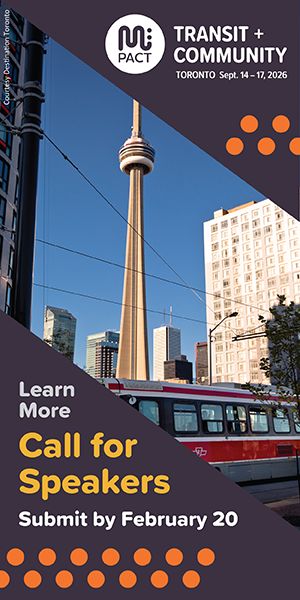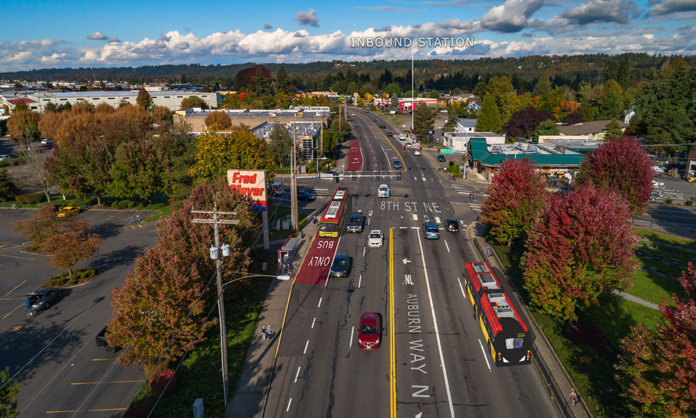
Construction on King County Metro’s next RapidRide bus line is scheduled to begin soon, but it could be held up as the county remains at an impasse with a small number of property owners.
The RapidRide I, which will replace the existing Route 160 between Renton and Auburn, secured a $79.7 million federal grant in the waning days of the Biden Administration. Earlier this month, the County awarded a construction contract that is set to allow the line to open by 2027 as planned.
When complete, RapidRide upgrades will shorten trips by as much as 18% at the busiest times of day, Metro projects. As the first RapidRide line built fully within South King County since the F Line in 2014, the I Line represents a major upgrade for areas with some of the highest rates of transit usage in the county. Following pandemic ridership losses, South King County routes have recovered faster than the rest of the county
But 25 different property owners along the I Line have been reluctant to negotiate with the county over portions of their properties needed for bus stations and other transit improvements, along with temporary construction staging. An even smaller subset has completely shut the door on the county, leading Metro leaders to consider a measure of last resort: condemnation.
None of the properties in question would be fully acquired for the I Line, but rather small sections along the roadway would host station infrastructure and related upgrades. No homes would be impacted. Without agreements handing over these slivers of properties that are needed as part of the project’s design, work can’t proceed on the I Line and the opening date could slip yet again — and a major delay could potentially attract the attention of federal regulators and put allocated funding in jeopardy.
The Trump Administration has been much more reluctant to fund transit projects, particularly in states run by Democrats. Proponents worry federal officials may be looking for excuses to claw back grants like the one the I Line relies on.
This week, County officials briefed the King County Council’s transportation committee on a forthcoming ordinance that will allow the County to condemn properties in cases where agreement can’t be reached via the normal channels. County leaders expressed hope that it will merely be the threat of condemnation that will finally bring those property owners to the table. But that approach has garnered push back from at least one councilmember, reluctant to grant condemnation authority and arguing to grant it only in cases where absolutely necessary.
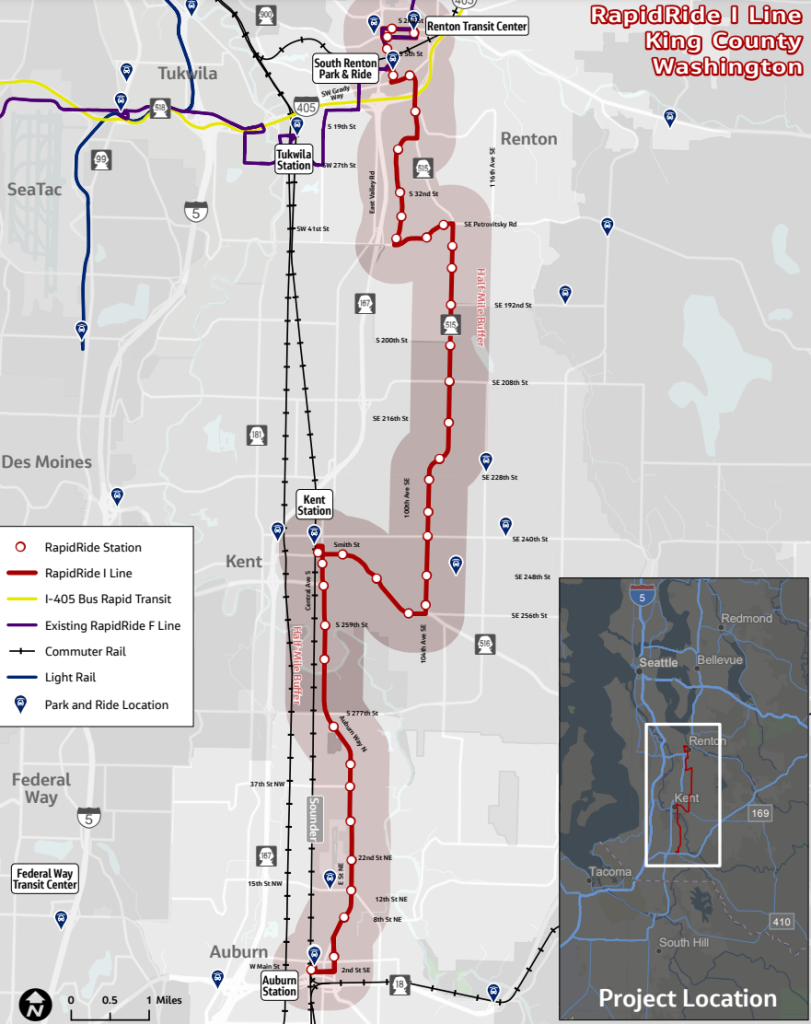
The I Line has been beleaguered by delays throughout its history, originally scheduled to open in 2023 after starting planning in 2019. Compared to recent RapidRide projects like the G and H Line, construction is expected to be much less intense, making it much quicker to implement. But coming to final agreement with all three cities along the route proved trickier than expected. Despite adopting a locally-preferred alternative in 2020, Metro significantly redesigned the project in 2023 in response to issues raised by local residents and from officials in local government.
“It is one of those projects where we know it is incredibly critical to community, and this action allows us to ensure that this project is going to move forward without getting hung up on just one particular place or entity that might have a little bit more power than others,” Monisha Harrell, the director of King County’s Office of Equity, Racial and Social Justice, told the committee, referencing the ability of legal challenges to fight normal avenues of property acquisition. “This is not something that the county has taken lightly.”
Out of the 25 properties still in limbo, King County says they have reached an impasse on four. The question is whether the county council will grant approval to move forward with condemnation proceedings on all 25 in the hopes of reaching a quicker resolution, or ask Metro to be more narrow in its request. Pushing for the narrow route is Councilmember Rod Dembowski, who represents North King County.
“I probably will not be supporting legislation that would give advance approval for condemnation across a whole bunch of projects for the I Line, and I have real concerns about it,” Dembowski said Tuesday. “There’s a long history of government abuse using condemnation power, and I believe fundamentally in our democratic system that people ought to be able to raise their voice to their elected representatives when they feel they need some help with their government. My concern with a pre-approval of a condemnation is that goes forward before folks even know they might be condemned, and then the bureaucracy has the power to proceed with condemnation.”
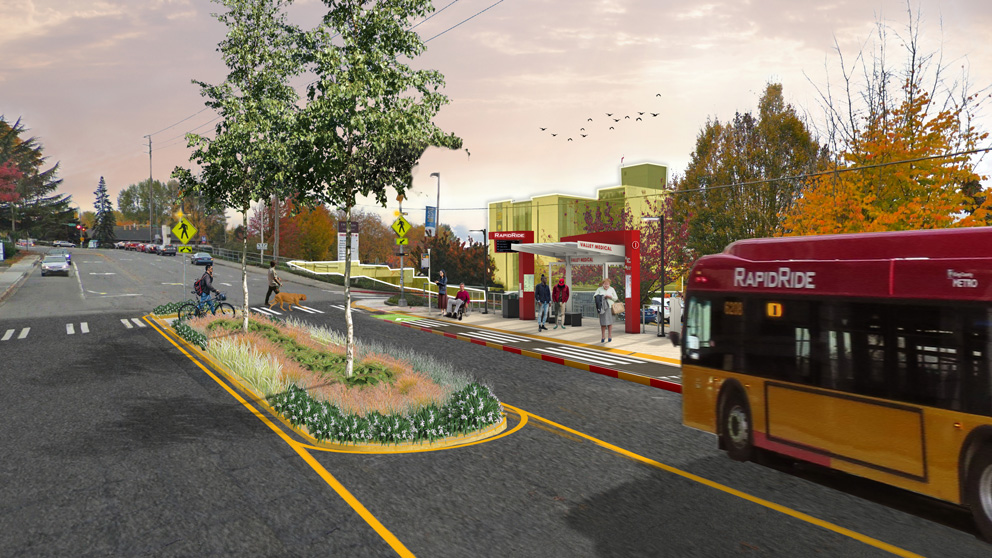
Other councilmembers appeared more open to granting condemnation powers to avoid project delay.
“I’m certainly open to it, because of the reasons that you’ve presented very clearly and that are, I think, really compelling,” Councilmember Claudia Balducci, who represents much of the Eastside, said. “We’ll need some detail, right? We’ll need to see not just ‘Here’s an example of the way in which the project is going to impact this one parcel,’ but we’re going to need to see all the parcels, and also all the details about communications that have been had.”
Dembowski pushed back on the idea that federal funding could be jeopardized if the I Line’s construction schedule slipped. “We built eight RapidRide lines. I don’t believe we’ve used this method on them, and we’ve never lost or put at risk our federal funding. I have to tell you, I just — the parade of horribles is that we might risk the federal grant. I think that sends a message out to anybody watching that that is at risk. And I don’t think it is, and I don’t think this council would let it be.”
“On the issue of whether or not there’s a risk of loss of federal funding, I think there is just so much uncertainty right now,” Balducci said. “We just don’t know. We don’t know what they’ll do. We don’t know when they’ll change their minds about things. We don’t know when the phone will stop being answered on the other end, because there’s nobody there to answer it.”
Councilmember De’Sean Quinn, appointed to the council earlier this year to represent many of the areas where the I Line will run, urged a focus on the benefits that would be provided by the project.
“I would state, in South King County, folks need to see themselves, in this RapidRide service, that they are a part of the process. That they can get quick times to their jobs, they get the quality of the facilities,” Quinn said. “Without a good route, the service guidelines say, if it’s not reliable then there’s not enough ridership… if there’s not enough ridership, then those services aren’t readily available to people.”
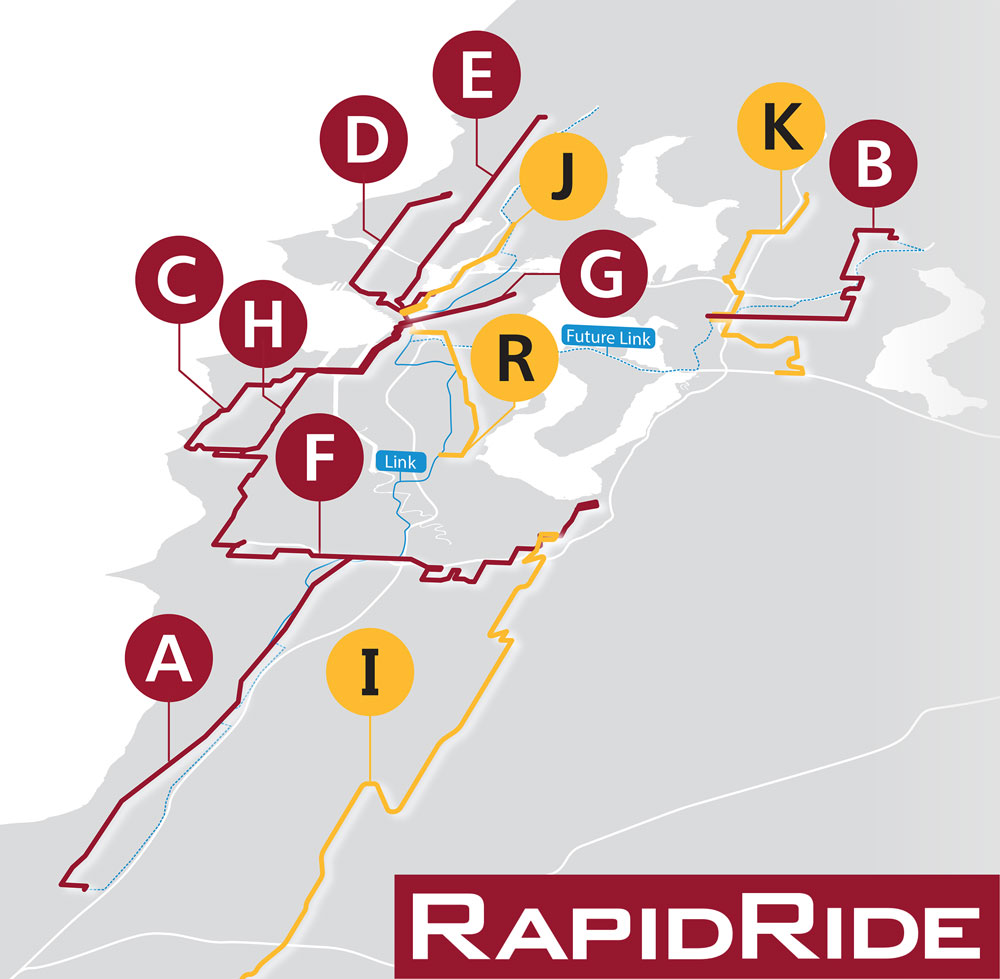
County officials argue that receiving condemnation authority on the full slate would allow them to ensure that the project stays on time — with delay, not only could federal funds be at risk, but as time goes on, costs go up. If the start of construction slips beyond this fall as scheduled, the I Line risks not being able to open in 2027 as planned.
“This is literally helping us to — and I know cost is one factor — but it’s helping us to mitigate the entire project by saying, ‘This is a tool available; only break glass if needed,'” Harrell said.
What’s clear is that the council is going to be heavily scrutinizing any decision to move ahead with condemnation authority on the I Line.
“I really want to see us move forward with this RapidRide project,” Balducci said. “It is the major way we are expanding and improving bus service these days. And if I don’t want to see that delayed or held up, at the same time, I want us to treat people very, very fairly.”
Ryan Packer has been writing for The Urbanist since 2015, and currently reports full-time as Contributing Editor. Their beats are transportation, land use, public space, traffic safety, and obscure community meetings. Packer has also reported for other regional outlets including BikePortland, Seattle Met, and PubliCola. They live in the Capitol Hill neighborhood of Seattle.


